
Věra Chytilová
출생 : 1929-02-02, Ostrava, Czechoslovakia
사망 : 2014-03-12
약력
Věra Chytilová was an avant-garde Czech film director and pioneer of Czech cinema.
At the age of 28 she was accepted into the Film and TV School of the Academy of Performing Arts in Prague (FAMU). While attending FAMU she studied underneath renowned film director Otakar Vavra, graduating in 1962.
Chytilová is best known for her once highly controversial film Sedmikrásky (Daisies) – (1966). Daisies is known for its un-sympathetic characters, lack of a continuous narrative and abrupt visual style. Chytilová states that she structured Daisies to “restrict [the spectator’s] feeling of involvement and lead him to an understanding of the underlying idea or philosophy”. The film was banned within Czechoslovakia upon its initial release in 1966 until 1967, but in 1966 the film won the Grand Prix at the Bergamo Film Festival in Italy.
After Daisies the government made it very difficult for Chytilová to find work within Czechoslovakia, even though she was never officially classified as a 'blacklisted' director. After the Soviet Union invasion in 1968 it was virtually impossible for her to find work and she resorted to directing commercials under her husband’s name, Jaroslav Kučera.
In 1976, due to the low cinema attendance she was approached by the government to begin directing films through a state-run production company. At the same time the United States was assembling a 'Year of Women' Film Festival and contacted Chytilová to gain permission to screen Daisies as their opening film. She informed the festival that the only non-censored prints of the film could be found in Paris and Brussels, and that her government would not allow her to attend the festival, nor were they allowing her to direct films. The festival then began to apply international pressure upon the Czechoslovakian government by petitioning on Chytilová’s behalf. In accordance with this international pressure Chytilová wrote a letter directly to President Gustáv Husák. Due to the success of the international pressure, and Chytilová’s personal appeal to President Husak, Chytilová began production of Hra o jablko (The Apple Game, 1976). The Apple Game was completed and then was screened at the Karlovy Vary International Film Festival, and won the Silver Hugo and the Chicago International Film Festival.
Chytilová described herself as a control freak and was known as being actively critical of the Soviet Union, stating that “My critique is in the context of the moral principles you preach, isn’t it? A critical reflection is necessary”. She would routinely cause havoc to make films that were loyal to her vision regardless of the heavy censorship that was routinely imposed. Věra Chytilová’s last film was released in 2006, and she has taught directing at FAMU.
Chytilová embodied a unique cinematographic language and style that does not rely on any literary or verbal conventions, but rather utilizes various forms of visual manipulations to create meaning within her films. Chytilová used observations of everyday life in accordance with allegories and surreal contexts to create a personalized film style that is greatly influenced by the French New Wave, and Italian neorealism.

Self
An epic exploration of the Czechoslovak New Wave cinema of the 1960s and 70s, structured around a series of conversations with one of its most acclaimed exponents - Closely Observed Trains director Jiří Menzel.
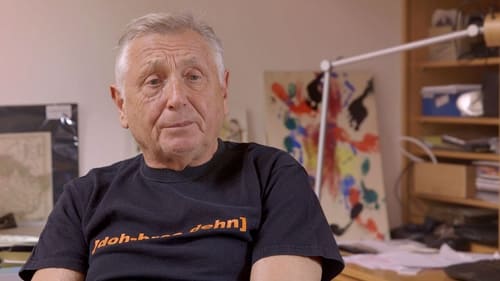
Self
Documentary feature about Czech director Jiří Menzel, featuring Menzel himself as well as Miloš Forman, Emir Kusturica, István Szabó and others.

Documentary about the making of Vera Chytilová's film DAISIES

Screenplay
Chytilová ran for Senate in 2006 as a Rovnost Šancí (The Equal Chance Party) candidate. The film is a collection of monologues by female party members from across the nation.

Idea
Chytilová ran for Senate in 2006 as a Rovnost Šancí (The Equal Chance Party) candidate. The film is a collection of monologues by female party members from across the nation.

Director
Chytilová ran for Senate in 2006 as a Rovnost Šancí (The Equal Chance Party) candidate. The film is a collection of monologues by female party members from across the nation.

Director
심리학자 하나는 저마다 다양한 문제와 개성을 가진 환자들과 차례로 상담을 진행한다. 각자 자신들의 심각한 고민을 털어놓는 환자들 사이에서 하나 역시 가족과 겪는 문제를 떠올리며 복잡미묘한 감정을 느낀다. 남녀 불평등, 세대간 단절, 일상 속의 고립감 등 현대 사회가 겪고 있는 문제를 바라보는 베라 히틸로바의 고민이 잘 드러난 작품.

Director
Ester Krumbachová - a costume designer, screenwriter, director; one of the boldest personalities of the Czech New Wave. She worked in theatre, she was a writer and an illustrator. She co-created films such as O slavnosti a hostech (1966), Sedmikrásky (1966), Vsichni dobrí rodáci (1969), Pension pro svobodné pány (1968), Valerie a týden divu (1970), Slamený klobouk (1972) and many others. In the 1960s, she was a 'pivot' of the art scene in Prague, attracting artists who were on the threshold of their career, just setting out to find their own form of self-realization. Those who underwent her tutelage remember her forever. Director Vera Chytilová talks to those who knew Ester Krumbachová, who worked with her, befriended her, loved her. She sets off on a search that is to end by answering the question: Who was Ester?

Herself
Ester Krumbachová - a costume designer, screenwriter, director; one of the boldest personalities of the Czech New Wave. She worked in theatre, she was a writer and an illustrator. She co-created films such as O slavnosti a hostech (1966), Sedmikrásky (1966), Vsichni dobrí rodáci (1969), Pension pro svobodné pány (1968), Valerie a týden divu (1970), Slamený klobouk (1972) and many others. In the 1960s, she was a 'pivot' of the art scene in Prague, attracting artists who were on the threshold of their career, just setting out to find their own form of self-realization. Those who underwent her tutelage remember her forever. Director Vera Chytilová talks to those who knew Ester Krumbachová, who worked with her, befriended her, loved her. She sets off on a search that is to end by answering the question: Who was Ester?

Herself
Documentary about Czech filmaker Vera Chytilova.

Screenplay
Philosophical movie, staged at the least philosophical environment imaginable: A closed scenery of a nudist spot, where some hired Czech stuff is making a plain erotic movie for a rich Russian producer. Nothing in this movie is what it seems to be at the first superficial glance.

Director
Philosophical movie, staged at the least philosophical environment imaginable: A closed scenery of a nudist spot, where some hired Czech stuff is making a plain erotic movie for a rich Russian producer. Nothing in this movie is what it seems to be at the first superficial glance.

Screenplay
Chytilová’s highly impressive but little-known documentary provides a fascinating and atmospheric journey into a hidden culture, one in which she herself participated. Chytilová investigates the lives of three Czech photographers (Václav Chochola, Karel Ludwig, Zdeněk Tmej) from the 30s to the present, and also embraces the submerged world of 50s culture and the work of novelist Bohumil Hrabal and artist Vladimír Boudník.

Director
Chytilová’s highly impressive but little-known documentary provides a fascinating and atmospheric journey into a hidden culture, one in which she herself participated. Chytilová investigates the lives of three Czech photographers (Václav Chochola, Karel Ludwig, Zdeněk Tmej) from the 30s to the present, and also embraces the submerged world of 50s culture and the work of novelist Bohumil Hrabal and artist Vladimír Boudník.
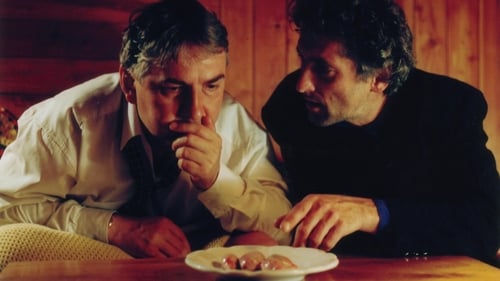
Writer
상류층의 삶을 즐기는 두 남자가 히치하이킹 중인 수의사 렌카를 우연히 만난다. 남자들은 아무렇지 않게 렌카를 성폭행하고 자리를 뜨려 하지만 렌카는 자신만의 방식으로 이들에게 복수를 가한다. 이후 두 남자의 일상은 완전히 바뀌고 만다. 끔찍한 상황과 유머러스한 묘사가 기묘한 부조화를 만들어내는 작품. 1998년 베니스영화제 엘비라 노타리 상 수상(특별 언급).

Director
상류층의 삶을 즐기는 두 남자가 히치하이킹 중인 수의사 렌카를 우연히 만난다. 남자들은 아무렇지 않게 렌카를 성폭행하고 자리를 뜨려 하지만 렌카는 자신만의 방식으로 이들에게 복수를 가한다. 이후 두 남자의 일상은 완전히 바뀌고 만다. 끔찍한 상황과 유머러스한 묘사가 기묘한 부조화를 만들어내는 작품. 1998년 베니스영화제 엘비라 노타리 상 수상(특별 언급).
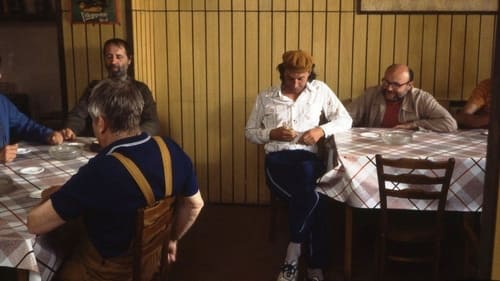
Writer
평범하게 살고 있던 시골 남자 보후스가 갑자기 거액의 유산을 상속받는다. 들뜬 남자는 마을을 떠나 부유한 도시 생활을 시작하고, 이때부터 웃지 못할 소동들이 벌어진다. 소련 붕괴 이후 급격하게 변화하는 공산주의 사회의 단면을 신랄하게 풍자하는 코미디 영화.

Director
평범하게 살고 있던 시골 남자 보후스가 갑자기 거액의 유산을 상속받는다. 들뜬 남자는 마을을 떠나 부유한 도시 생활을 시작하고, 이때부터 웃지 못할 소동들이 벌어진다. 소련 붕괴 이후 급격하게 변화하는 공산주의 사회의 단면을 신랄하게 풍자하는 코미디 영화.

Director
The life of Tomáš Garrigue Masaryk, the first elected President of Czechoslovakia following the fall of the Austro-Hungarian empire in 1918.
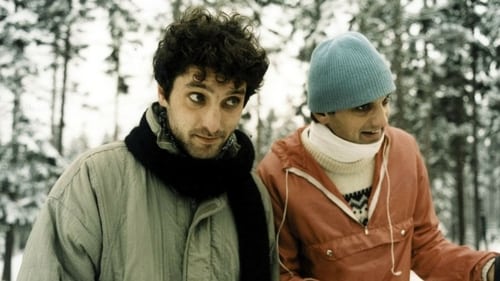
Writer
친한 친구인 페페와 데덱, 그리고 프란티섹은 다양한 방법을 이용해 성적인 즐거움을 누린다. 하지만 어느 날, 우연한 계기로 이들 중 한 사람이 에이즈 환자라는 사실을 알게 되고, 지금까지 끈끈하게 유지했던 이들의 우정은 흔들리기 시작한다. 80년대 후반의 체코 사회, 특히 젊은 세대들 사이에 떠돌았던 공허한 분위기를 유머러스한 태도로 포착한 작품.

Director
친한 친구인 페페와 데덱, 그리고 프란티섹은 다양한 방법을 이용해 성적인 즐거움을 누린다. 하지만 어느 날, 우연한 계기로 이들 중 한 사람이 에이즈 환자라는 사실을 알게 되고, 지금까지 끈끈하게 유지했던 이들의 우정은 흔들리기 시작한다. 80년대 후반의 체코 사회, 특히 젊은 세대들 사이에 떠돌았던 공허한 분위기를 유머러스한 태도로 포착한 작품.

Director
The movie is a satirical look at foreign occupation - a medieval Czech jester entertains a German king and his French wife, or a modern Czech villager helps a Bavarian hunter and his French wife find wild boar in Bohemia - the story switches back and forth between the two plots and time-periods.
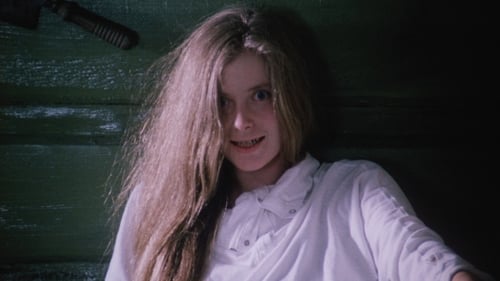
Writer
어느 산속의 산장에 열한 명의 아이들이 모인다. 아직 모임의 정확한 성격도 모르는 아이들 앞에 산장지기가 나타나 이곳에 초대받지 않은 한 명이 끼어 있다고 말한다. 외부와의 연락이 차단된 상태에서 아이들은 점차 공포와 혼란에 빠지고, 결국 서로를 의심하며 죽고 죽이는 상황에 처한다. 부조리한 전개 속에 그려진 극단적 사건들이 강렬한 인상을 남기는 작품. 1987년 베를린영화제 경쟁부문 상영.

Director
어느 산속의 산장에 열한 명의 아이들이 모인다. 아직 모임의 정확한 성격도 모르는 아이들 앞에 산장지기가 나타나 이곳에 초대받지 않은 한 명이 끼어 있다고 말한다. 외부와의 연락이 차단된 상태에서 아이들은 점차 공포와 혼란에 빠지고, 결국 서로를 의심하며 죽고 죽이는 상황에 처한다. 부조리한 전개 속에 그려진 극단적 사건들이 강렬한 인상을 남기는 작품. 1987년 베를린영화제 경쟁부문 상영.

Story
This distinctive documentary portrait of Prague extolls the beauty, significance and spirit of the ancient city adopting modern way of life. The form and content of the film share a common underlining principle. The author doesn't simply list out the sequence of events, but rather approaches them in a broader context of their historic implications and circumstances. The content of the film covers a large period from the pagan times to these days. The facts are grouped under several general headings (paganry, the spread of Christianity, renaissance, baroq and modern times) with allusions to the modern life of Prague and Praguers that has its roots in those times.

Screenplay
This distinctive documentary portrait of Prague extolls the beauty, significance and spirit of the ancient city adopting modern way of life. The form and content of the film share a common underlining principle. The author doesn't simply list out the sequence of events, but rather approaches them in a broader context of their historic implications and circumstances. The content of the film covers a large period from the pagan times to these days. The facts are grouped under several general headings (paganry, the spread of Christianity, renaissance, baroq and modern times) with allusions to the modern life of Prague and Praguers that has its roots in those times.

Director
This distinctive documentary portrait of Prague extolls the beauty, significance and spirit of the ancient city adopting modern way of life. The form and content of the film share a common underlining principle. The author doesn't simply list out the sequence of events, but rather approaches them in a broader context of their historic implications and circumstances. The content of the film covers a large period from the pagan times to these days. The facts are grouped under several general headings (paganry, the spread of Christianity, renaissance, baroq and modern times) with allusions to the modern life of Prague and Praguers that has its roots in those times.

Writer
늙음과 에로티시즘, 멈출 수 없는 시간이라는 세 가지 테마를 다룬 베라 히틸로바의 중기 대표작. 돈 주앙 콤플렉스를 가진 독신남 판은 여인들과의 사랑에 삶의 의미를 두고 잠깐의 성애를 즐기기 위한 대상을 필사적으로 찾는 생활을 평생 반복해 왔다. 그러나 시간이 흐르며 죽음이 가까이 왔음을 느끼고 우울증에 빠져 자신의 삶을 회의한다.

Director
늙음과 에로티시즘, 멈출 수 없는 시간이라는 세 가지 테마를 다룬 베라 히틸로바의 중기 대표작. 돈 주앙 콤플렉스를 가진 독신남 판은 여인들과의 사랑에 삶의 의미를 두고 잠깐의 성애를 즐기기 위한 대상을 필사적으로 찾는 생활을 평생 반복해 왔다. 그러나 시간이 흐르며 죽음이 가까이 왔음을 느끼고 우울증에 빠져 자신의 삶을 회의한다.

Director
An intellectual match between two dramatically different artists, one permanently unsure and frustrated and questioning everything, the other an astonishing storyteller perfectly at peace, unacquainted with introspection and reliant on intuition.

An intellectual match between two dramatically different artists, one permanently unsure and frustrated and questioning everything, the other an astonishing storyteller perfectly at peace, unacquainted with introspection and reliant on intuition.

Screenplay
흰눈이 내린 추운 겨울, 젊은 기관사 혼자는 들뜬 맘으로 기차역으로 향한다. 오늘은 그가 처음 기차의 운전대를 잡는 날이기 때문이다. 영화는 혼자의 조금은 특별한 일상을 보여주는 한편 그가 오고 가며 만나는 다양한 개성의 사람들을 생동감 넘치게 그린다. ‘재앙’조차 일상의 연장선 안에서 그리는 베라 히틸로바의 활기찬 시선이 돋보인다.

Director
흰눈이 내린 추운 겨울, 젊은 기관사 혼자는 들뜬 맘으로 기차역으로 향한다. 오늘은 그가 처음 기차의 운전대를 잡는 날이기 때문이다. 영화는 혼자의 조금은 특별한 일상을 보여주는 한편 그가 오고 가며 만나는 다양한 개성의 사람들을 생동감 넘치게 그린다. ‘재앙’조차 일상의 연장선 안에서 그리는 베라 히틸로바의 활기찬 시선이 돋보인다.
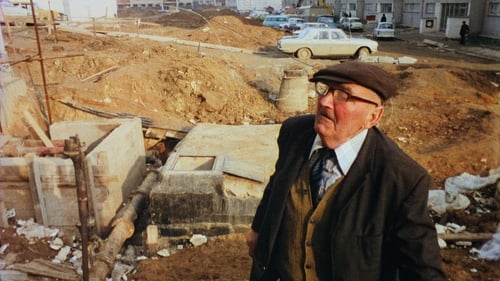
Writer
한창 공사가 진행 중인 프라하의 공동 주택 단지. 입주를 원하는 사람들은 기대에 찬 표정으로 이곳을 찾고, 원래 이곳에 살던 사람들은 무관심하게 이들의 방문을 지켜본다. 이 영화의 또다른 주인공은 도시의 거칠고 삭막한 풍경이다. 아무것도 없는 폐허 위에 우뚝 솟은 아파트 단지들은 초현실적인 느낌마저 선사한다. 감독은 과감한 촬영 및 편집으로 더욱 독특한 분위기를 만들어낸다.

Director
한창 공사가 진행 중인 프라하의 공동 주택 단지. 입주를 원하는 사람들은 기대에 찬 표정으로 이곳을 찾고, 원래 이곳에 살던 사람들은 무관심하게 이들의 방문을 지켜본다. 이 영화의 또다른 주인공은 도시의 거칠고 삭막한 풍경이다. 아무것도 없는 폐허 위에 우뚝 솟은 아파트 단지들은 초현실적인 느낌마저 선사한다. 감독은 과감한 촬영 및 편집으로 더욱 독특한 분위기를 만들어낸다.

Story
Documentary about old age.

Screenplay
Documentary about old age.

Director
Documentary about old age.

Screenplay
Sarcastic comedy about the Czechoslovakia of the seventies. A young gynaecologist can't figure out whether to get serious with a young nurse or to stay casual with his married lover. Things get complicated when both women don't want to play his game anymore.

Story
Sarcastic comedy about the Czechoslovakia of the seventies. A young gynaecologist can't figure out whether to get serious with a young nurse or to stay casual with his married lover. Things get complicated when both women don't want to play his game anymore.

Director
Sarcastic comedy about the Czechoslovakia of the seventies. A young gynaecologist can't figure out whether to get serious with a young nurse or to stay casual with his married lover. Things get complicated when both women don't want to play his game anymore.

Screenplay
Chytilová was not allowed to direct films between 1969 and 1976. The sole exception was the made-for-TV film Kamarádi, now virtually unknown.

Director
Chytilová was not allowed to direct films between 1969 and 1976. The sole exception was the made-for-TV film Kamarádi, now virtually unknown.
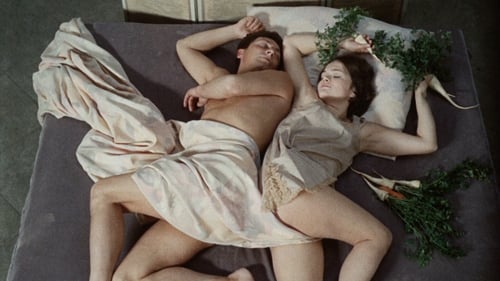
Screenplay
평범한 생활을 하던 에바는 남편에 대한 싫증으로 비밀에 싸인 남자 로버트의 유혹을 받아들여 여행을 떠난다. 그녀는 여행 중에 왜 많은 사람들이 불행한 관계에서 벗어나지 못한 채 살아가는지 이해하려고 한다. 영화는 우화적인 이야기와 시각적 콜라주의 실험적이고 과감한 결합을 보여주며 남자와 여자의 끝없는 싸움을 그려낸다. 동시에 남자와 여자가 삶을 공유하면서 결혼에 대한 진실까지 함께 받아들일 수 있는지 질문한다. 1970년 칸영화제 경쟁 부문 상영.

Director
평범한 생활을 하던 에바는 남편에 대한 싫증으로 비밀에 싸인 남자 로버트의 유혹을 받아들여 여행을 떠난다. 그녀는 여행 중에 왜 많은 사람들이 불행한 관계에서 벗어나지 못한 채 살아가는지 이해하려고 한다. 영화는 우화적인 이야기와 시각적 콜라주의 실험적이고 과감한 결합을 보여주며 남자와 여자의 끝없는 싸움을 그려낸다. 동시에 남자와 여자가 삶을 공유하면서 결혼에 대한 진실까지 함께 받아들일 수 있는지 질문한다. 1970년 칸영화제 경쟁 부문 상영.
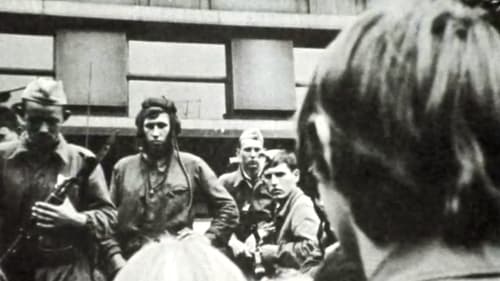
Herself
Filmed clandestinely in Czechoslovakia on 16mm. It's one of the films Godard made with the Groupe Dziga Vertov - a Marxist film about the political situation after the '68 revolution.
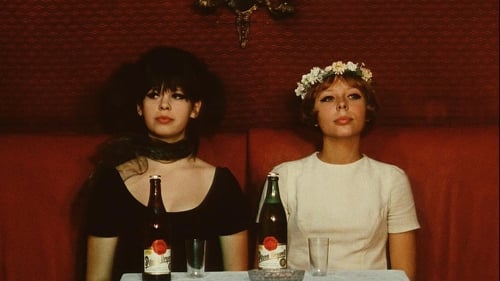
Story
마리라는 똑같은 이름을 가진 두 소녀는 세상이 썩었다고 생각한 나머지 일탈 행위를 즐기며 자신들만의 삶을 영위하려 한다. 그러나 자신들의 생각이 틀렸다는 결론에 도달한 두 소녀는 어떤 선택을 내린다.
관습을 깨뜨리는 몽타주와 이미지의 왜곡 등 다양한 영화 장치를 통해 무정부주의적 유머를 선사하는 베라 히틸로바의 초기 대표작.

Screenplay
마리라는 똑같은 이름을 가진 두 소녀는 세상이 썩었다고 생각한 나머지 일탈 행위를 즐기며 자신들만의 삶을 영위하려 한다. 그러나 자신들의 생각이 틀렸다는 결론에 도달한 두 소녀는 어떤 선택을 내린다.
관습을 깨뜨리는 몽타주와 이미지의 왜곡 등 다양한 영화 장치를 통해 무정부주의적 유머를 선사하는 베라 히틸로바의 초기 대표작.

Director
마리라는 똑같은 이름을 가진 두 소녀는 세상이 썩었다고 생각한 나머지 일탈 행위를 즐기며 자신들만의 삶을 영위하려 한다. 그러나 자신들의 생각이 틀렸다는 결론에 도달한 두 소녀는 어떤 선택을 내린다.
관습을 깨뜨리는 몽타주와 이미지의 왜곡 등 다양한 영화 장치를 통해 무정부주의적 유머를 선사하는 베라 히틸로바의 초기 대표작.

Self
Documentary about the film academy in Prague and the Czech Film in 1965.
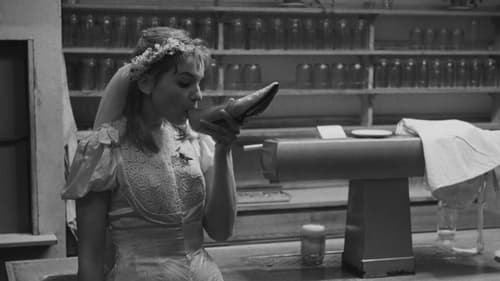
Screenplay
A manifesto of sorts for the Czech New Wave, this five-part anthology shows off the breadth of expression and the versatility of the movement’s directors. Based on stories by the legendary writer Bohumil Hrabal, the shorts range from the surreally chilling to the caustically observant to the casually romantic, but all have a cutting, wily view of the world.

Director
A manifesto of sorts for the Czech New Wave, this five-part anthology shows off the breadth of expression and the versatility of the movement’s directors. Based on stories by the legendary writer Bohumil Hrabal, the shorts range from the surreally chilling to the caustically observant to the casually romantic, but all have a cutting, wily view of the world.

Screenplay
영화는 대회를 앞두고 열심히 훈련에 몰두하는 체조 선수 에바의 삶을 다큐멘터리적 스타일로 보여주는 한편 자녀 양육을 포함해 너무 많은 가사 노동에 지친 평범한 가정 주부 베라의 삶을 교차해 보여준다. 실제 올림픽 금메달리스트인 에바 보사코바가 출연해 사실적인 연기를 선보인다. 베라 히틸로바의 첫 번째 장편 극영화.

Story
영화는 대회를 앞두고 열심히 훈련에 몰두하는 체조 선수 에바의 삶을 다큐멘터리적 스타일로 보여주는 한편 자녀 양육을 포함해 너무 많은 가사 노동에 지친 평범한 가정 주부 베라의 삶을 교차해 보여준다. 실제 올림픽 금메달리스트인 에바 보사코바가 출연해 사실적인 연기를 선보인다. 베라 히틸로바의 첫 번째 장편 극영화.

Director
영화는 대회를 앞두고 열심히 훈련에 몰두하는 체조 선수 에바의 삶을 다큐멘터리적 스타일로 보여주는 한편 자녀 양육을 포함해 너무 많은 가사 노동에 지친 평범한 가정 주부 베라의 삶을 교차해 보여준다. 실제 올림픽 금메달리스트인 에바 보사코바가 출연해 사실적인 연기를 선보인다. 베라 히틸로바의 첫 번째 장편 극영화.
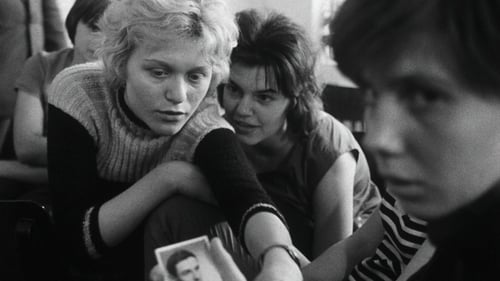
Screenplay
The themes of anarchy and individualism that run through Věra Chytilová’s work begin here, in an almost docu-realist look at women finding freedom and joy amid the rigid conformity of life in a communal factory dormitory.

Story
The themes of anarchy and individualism that run through Věra Chytilová’s work begin here, in an almost docu-realist look at women finding freedom and joy amid the rigid conformity of life in a communal factory dormitory.

Director
The themes of anarchy and individualism that run through Věra Chytilová’s work begin here, in an almost docu-realist look at women finding freedom and joy amid the rigid conformity of life in a communal factory dormitory.

Commentary (voice)
Her first foray into documentary filmmaking was a short called Green Street (1959), a look at an over-loaded freight train departing from Prague. Though only nine minutes in length, Chytilová’s astute editing ensured a visual spectacle.

Story
Her first foray into documentary filmmaking was a short called Green Street (1959), a look at an over-loaded freight train departing from Prague. Though only nine minutes in length, Chytilová’s astute editing ensured a visual spectacle.

Screenplay
Her first foray into documentary filmmaking was a short called Green Street (1959), a look at an over-loaded freight train departing from Prague. Though only nine minutes in length, Chytilová’s astute editing ensured a visual spectacle.

Director
Her first foray into documentary filmmaking was a short called Green Street (1959), a look at an over-loaded freight train departing from Prague. Though only nine minutes in length, Chytilová’s astute editing ensured a visual spectacle.

Model (voice)
마르타는 주목받는 젊은 모델이다. 영화는 마르타의 바쁜 작업 과정과 일상의 활기찬 생활을 기록하는 한편, 그 사이에 종종 찾아오는 마르타의 무표정을 가만히 포착한다. 한 인물에 대한 다큐멘터리적 접근이 돋보이는 베라 히틸로바의 초기 단편.

Story
마르타는 주목받는 젊은 모델이다. 영화는 마르타의 바쁜 작업 과정과 일상의 활기찬 생활을 기록하는 한편, 그 사이에 종종 찾아오는 마르타의 무표정을 가만히 포착한다. 한 인물에 대한 다큐멘터리적 접근이 돋보이는 베라 히틸로바의 초기 단편.

Screenplay
마르타는 주목받는 젊은 모델이다. 영화는 마르타의 바쁜 작업 과정과 일상의 활기찬 생활을 기록하는 한편, 그 사이에 종종 찾아오는 마르타의 무표정을 가만히 포착한다. 한 인물에 대한 다큐멘터리적 접근이 돋보이는 베라 히틸로바의 초기 단편.

Director
마르타는 주목받는 젊은 모델이다. 영화는 마르타의 바쁜 작업 과정과 일상의 활기찬 생활을 기록하는 한편, 그 사이에 종종 찾아오는 마르타의 무표정을 가만히 포착한다. 한 인물에 대한 다큐멘터리적 접근이 돋보이는 베라 히틸로바의 초기 단편.

Screenplay
In a rare instance of literary adaptation, Chytilová was inspired by Franz Kafka’s writings. Mr. K stashes stolen jewelry away at home and seldom allows his wife to wear it. A nosy neighbour, Mr. B, drops in. A cat observes it all.

Cat (voice)
In a rare instance of literary adaptation, Chytilová was inspired by Franz Kafka’s writings. Mr. K stashes stolen jewelry away at home and seldom allows his wife to wear it. A nosy neighbour, Mr. B, drops in. A cat observes it all.

Director
In a rare instance of literary adaptation, Chytilová was inspired by Franz Kafka’s writings. Mr. K stashes stolen jewelry away at home and seldom allows his wife to wear it. A nosy neighbour, Mr. B, drops in. A cat observes it all.

Assistant Director
Lost Children (Czech: Ztracenci) is a Czechoslovak war film directed by Miloš Makovec. It was entered into the 1957 Cannes Film Festival.
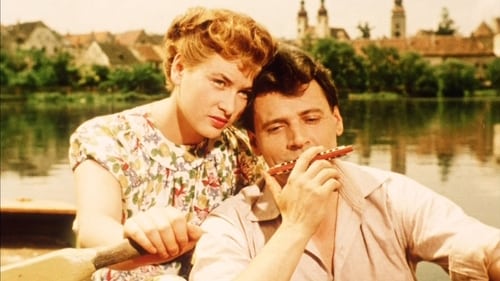
Clapper Loader

Clapper Loader
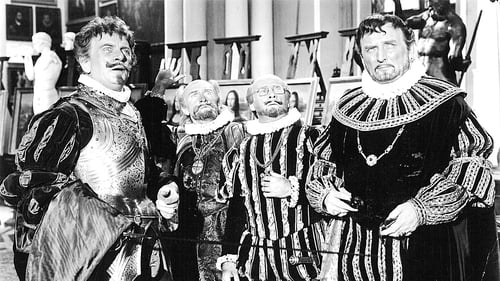
First Handmaiden
The Emperor's mismanagement of his country is provoking some in his court to plot to overthrow him. He feels successful, at least, when he discovers the legendary Golem, which he believes can protect him and even cure his imaginary illnesses but, when he disappears while on a bender, his kindly baker, who looks just like him, is mistaken for him, and begins to put things in order. However, the conspirators, not to be outdone, determine to bring the Golem back to life to do their bidding.





















